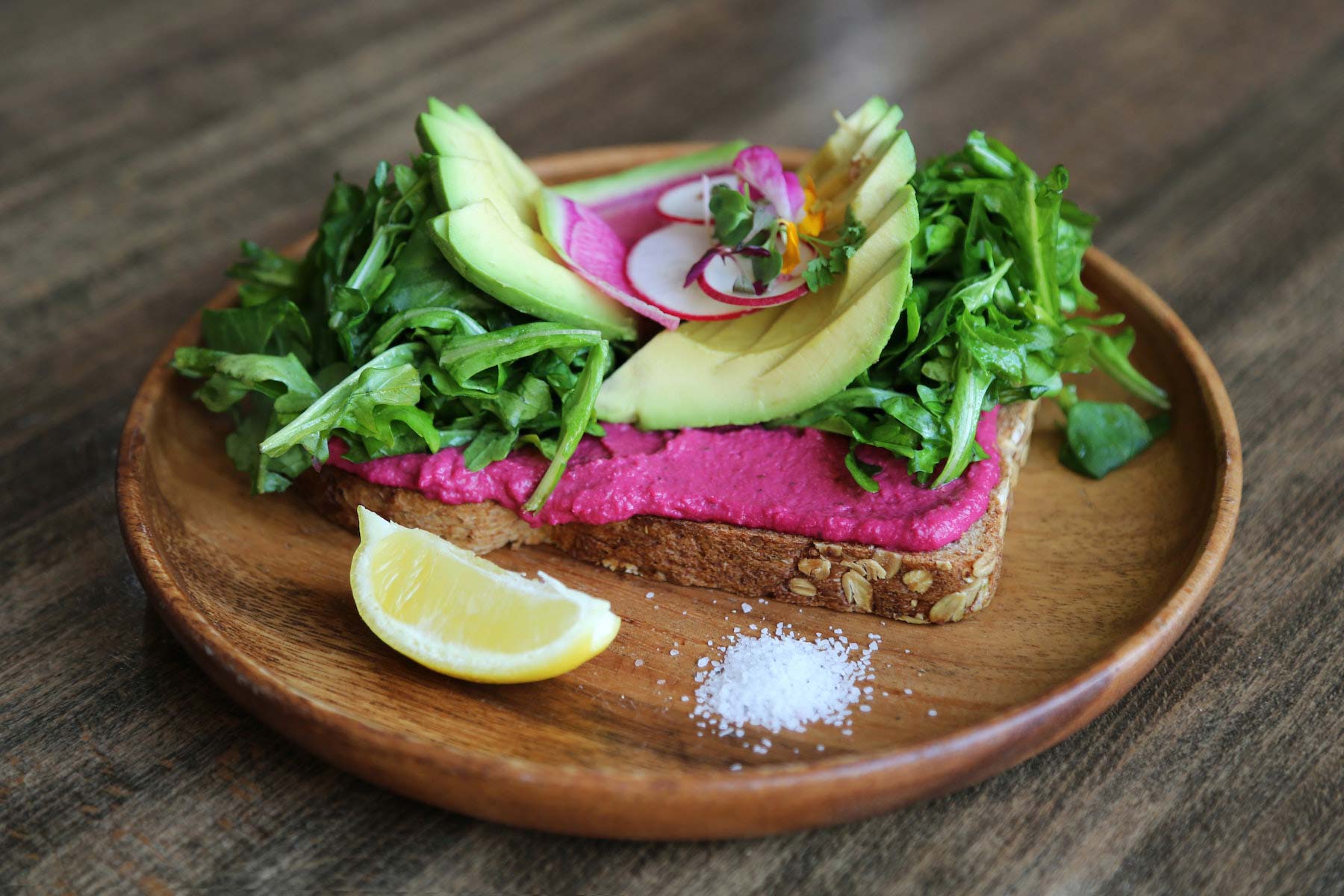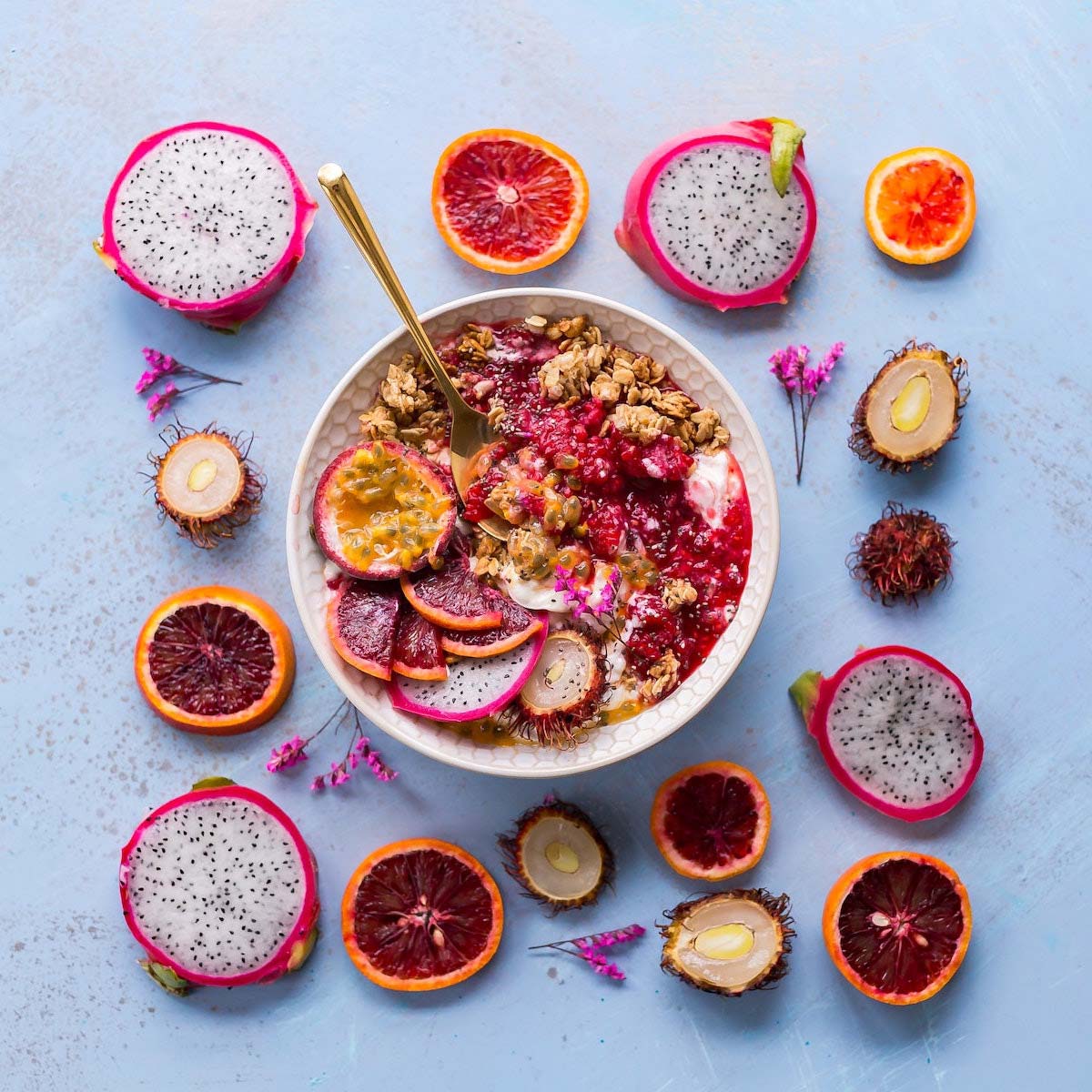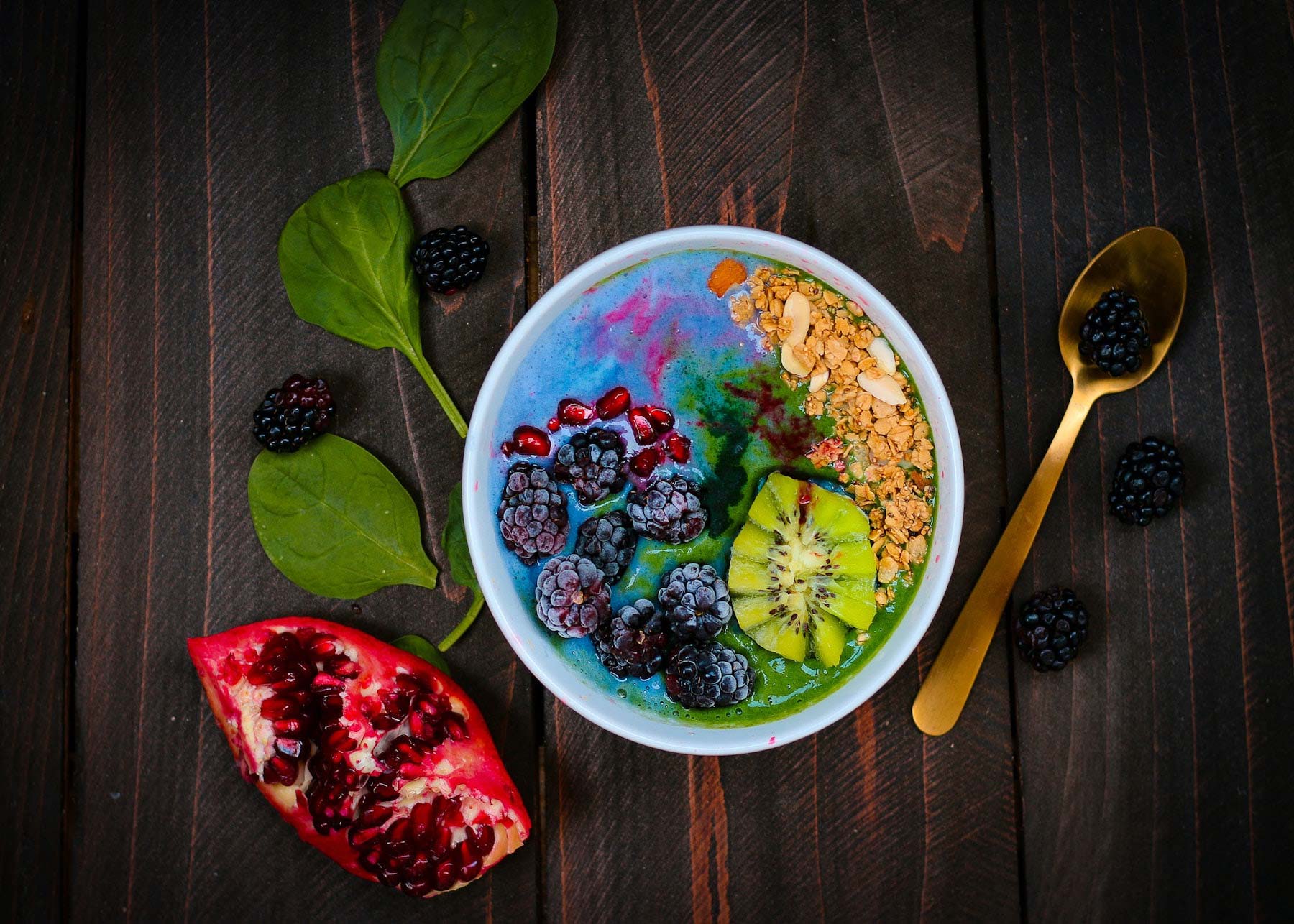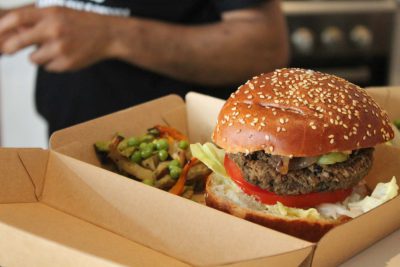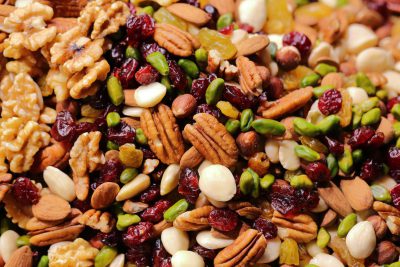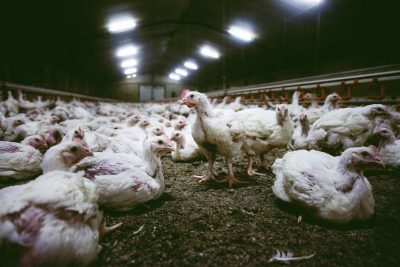Estimated reading time: 13 minutes
There is a reason that veganism is the trend that just won’t stop trending: as people try it and experience for themselves the significant benefits of switching to a plant-based diet, they inspire many others to join the same healthy revolution, and so the movement grows. And of course, this is not just a diet that is good for us – for our hair, skin, sleep, mental and physical health – it’s good for the health of the planet, and for global public health, too.
What Is A Vegan Diet?
A vegan diet is plant-based, and contains no animal products – meat, fish, dairy, eggs or honey. To think vegans just eat vegetables though would be a mistake, as vegan meals look and taste very much like non-vegan ones. Vegans eat tacos, burgers, hot dogs, pizza, curries, soups, pies and many other regular favorites, but it’s when we load our diet with fruits, grains and vegetables, that our bodies really flourish.
What Happens To Your Body When You Go Vegan?
Even though a plant-based diet might look a lot like a non-vegan diet, the difference in what it can do for us is profound. There is no cholesterol in plants, and a plant-based diet also tends to be lower in saturated fats. At the same time, it is rich in fiber, natural prebiotics, vitamins, minerals and health-boosting antioxidants. Because of these properties and more, a plant-based diet can have an astounding impact on both our short-term health and wellbeing, while reducing the risk of illness in the long term. There is also evidence that vegans live longer!
Lower Risk Of Heart Disease
Research also consistently shows that a plant-based diet rich in fruits, vegetables, legumes and wholegrains can be beneficial in managing, halting and even reversing stroke, coronary and vascular heart disease, and peripheral arterial disease. No wonder a vegan diet is at the center of many innovative programs aimed at managing this devastating disease.
Reduce Risk Of Cancer
We know that all processed meats cause cancer, and that all red meat ‘probably’ causes cancer so avoiding meat altogether is advisable, but did you know that milk could be problematic too? Research has shown that consistently drinking as little as one cup of dairy milk per day can increase your risk of breast cancer by up to 50 percent. However, research shows that vegan diets are associated with a decrease in the incidence of all cancers combined, and specifically the risk of female-specific cancers, when compared with non-vegans.
Prevent Cognitive Decline
Research suggests that eating a diet rich in fruits, vegetables, and whole grains and low in animal products reduces the risk of cognitive decline in later life. Studies conducted at the National University of Singapore’s (NUS) Saw Swee Hock School of Public Health followed more than 63,000 people for more than 20 years and found that those who adhered to plant-based diets in midlife had a lower risk of cognitive decline in later years.
Reducing Risk Of Diabetes
A whole food plant-based diet, which is naturally low in fat, is a powerful tool for preventing, managing, and even reversing type 2 diabetes because it allows insulin to function properly. It has been shown to be effective at reducing and managing symptoms of type 1 diabetes as well. A 2003 NIH study tested thousands of patients with type 2 diabetes and found that a plant-based diet controlled blood sugar three times more effectively than a traditional diabetes diet and within weeks participants enjoyed dramatic health improvements. In some cases, you wouldn’t even have known they’d had the disease at all.
More Energy
It is so common for new vegans to talk about how much energy they have that it has almost become a cliché! But like all clichés, it is rooted in truth. Maybe it’s because new vegans are getting a sudden hit of plant power and their body is responding positively to this intake of health-giving nutrients. It could be that without meat and other animal products that take a lot of energy to digest, their body feels lighter and less tired, especially after big meals. We don’t know for sure, but we certainly love feeling it!
Better Night Sleep
Another common report from new vegans is that they sleep better. It may be the fiber-rich diet helps maintain energy levels without the highs and slumps that exhaust us but still leave us unable to sleep at night. 2018 research found that high-fat diets and the consumption of processed meats and other animal-based products worsen sleep apnea so it’s clear that animal products can have an impact but for some people there is a psychological component, too. We feel more at peace when we are taking care of our bodies, doing what we can to protect the planet and no longer funding factory farms and slaughterhouses. And that beautiful peace of mind can bring beautiful peaceful sleep.
Skin Improvement
You’ve heard about the “vegan glow” right? Fresh fruits and vegetables contain antioxidants that help to protect skin from cellular damage. Maybe it’s the beta carotene in vegetables like carrots, pumpkin and sweet potatoes; maybe it’s the lutein found in kale, spinach and papaya; perhaps it’s the vitamin C in berries, broccoli and citrus fruits; it could be the selenium in Brazil nuts, alfalfa and whole grains; or the vitamin E in almonds, avocados and sunflower seeds. In reality, it is probably all of these things combined that nourish our skin and can keep us looking the very picture of health.
Relieve Symptoms Of Autoimmune And Inflammation Disorders
Our immune system is a powerful in-built defense system designed to protect us from invading pathogens. An underactive immune system leaves us vulnerable to disease, but one that goes into overdrive and attacks our own healthy cells can result in allergies, chronic inflammation and debilitating autoimmune conditions such as lupus, rheumatoid arthritis and multiple sclerosis. Immunologists agree that increasing our plant intake is key to supporting a healthy immune system. Professor Tim Spector, Professor of Genetic Epidemiology at King’s College London, suggests we eat 30 different types of fruit and vegetables each week.
Will Improve Your Gut Health
It’s become clear that our guts do so much more than extract nutrients from food and get rid of the waste. Research is increasingly finding that the health of our guts impacts a wide variety of health conditions, from cancer and depression to diabetes and Alzheimer’s disease. A diet rich in vegetables, fruits, legumes, and whole grains provides the prebiotic fiber that builds good bacteria, and especially potent are oats, berries, asparagus, leeks, garlic and bananas. Animal products, by contrast, are inflammatory, feed the bad bacteria, and we would do well to avoid them.
Your Taste Buds Will Change
It’s a curious thing but when you stop eating animal foods for a while your taste buds change, and it’s common to find that the food you may have been missing actually now tastes unpleasant, rancid, even a bit rotten. It’s as though we can taste what they really are for the first time! New vegans often report that they lose their sugar cravings, and that naturally sweet foods like apples and dates now satisfy that desire. Others report that they can’t get enough of vegetables that they never used to like. This isn’t just anecdotal. Shilpa Ravella, MD, gastroenterologist and assistant professor of medicine at Columbia University Medical Center says: “We have evidence to back up the idea that even if you go a few weeks without junk foods and animal products high in salt, fat, and sugar, your tastes start to change.”
Body Odor Changes
Researchers at Charles University in Prague wanted to find out if diet affects body odor and so they studied men who stopped eating meat for two weeks. After that time, they asked women to rate the smells of the newly vegetarian men as well as the meat-eating control group. And guess what? They found the body odors of the vegetarian men sexier, more pleasant, and less intense. We all know that our odor changes with what we eat, but we may not have known that eating plant-based foods makes us smell so much sweeter.
PMS Symptoms Become Lighter
Some vegans find that the symptoms they experience in the days and weeks before their period improve. These symptoms – which can include feelings of sadness or irritability, exhaustion, insomnia, abdominal pain, headaches and breast soreness – can be incredibly debilitating, so finding natural ways to reduce them and limit their impact can have a profound effect on our wellbeing. Some women find that becoming vegan does this, though it’s unclear how. Some think it’s related to dairy, others to dietary fat. Whatever the reason, if PMS is a problem in your life, perhaps switching to plant-based could help.
Decreases The Chances Of Catching A Cold
A healthy immune system can beat off the cold virus before it has a chance to take hold, and a plant-based diet is perfect for keeping our natural defense system working well. It’s not just about diet, of course – we need to exercise, sleep well, and avoid alcohol and smoking – but a plant-rich diet can do wonders for us, and may prevent us picking up bugs when those around us succumb.
Improve Focus
Our mental health is very much affected by what we eat, and research is increasingly pointing to free radicals – those unstable molecules that cause oxidative stress – as having a role in psychological disorders. The best way to combat free radicals is to eat foods that are rich in antioxidants. This includes: beta-carotene (cantaloupe, carrots, pumpkin, peaches); vitamin C (berries, kiwi fruits, oranges, bell peppers); and vitamin E (nuts, seeds, avocado, and wheatgerm). The fact that the plant-based diet is naturally so rich in antioxidants may be the reason why so many new vegans say they experience better mental clarity.
Reduced Risk Of Alzheimer’s
Worldwide, 50 million people are living with dementia, a degenerative brain disease that most commonly afflicts people as they age. We may think there is little we can do to prevent it but, according to neurologists Dean and Ayesha Sherzai, we would be wrong. These doctors have developed a five-point program that they say can prevent Alzheimer’s in 90 percent of people, and can delay onset by up to 15 years in the remaining 10 percent who have a genetic predisposition to the disease. Exercise, sleep, managing stress and challenging ourselves are all part of the program, and the fifth element is eating a plant-based diet. Watch the doctors sharing their secrets here:
Hair Growth
Says vegan dietitian Yvonne O’Halloran: “Many people will find that their hair actually improves once going vegan—it’s shinier, thicker, and healthier looking. Due to the dramatic increased quantities of antioxidants, vitamins, minerals, and phytonutrients, your hair may benefit greatly. The main thing is to eat a variety of whole plant foods and watch your levels of iron, B12, vitamin D, and healthy fats.”
No More Pain After You Work Out
If you’ve seen The Game Changers movie you’ll know that athletes often find significant benefits from becoming vegan, and one of those is reduced muscle soreness. Quicker recovery after training sessions allows them to train harder, for longer, and more often, and get the edge over their competitors.
You Age Better
Researchers who study Blue Zones – parts of the world where people live longer and healthier than the average – have found that people who live in these regions tend to eat a predominantly plant-based diet. The answer to why this is may be found at the cellular level. Every cell in the human body contains 46 chromosomes, at the end of which is a ‘cap’ called a telomere. As we age, these telomeres become shorter, and our cells deteriorate and die. Many things can affect our telomeres – including depression, lack of sleep and poverty – but diet is also a key component. Studies show that a low-fat plant-based diet doesn’t just protect telomeres from shortening but can actually elongate them.
Does Your Body Detox When You Go Vegan?
It’s not so much that your body detoxes when you go vegan, more that you stop putting foods into your body that can throw it out of balance, cause inflammation, oxidative stress and ultimately disease. The vegan diet is not a special ‘detox’ diet. There are no secret ‘must have’ ingredients that will guarantee you inner peace and longevity. But if you eat a good balance of whole plant foods, your body will be optimally fueled and fulfilled, and will not have to work so hard to deal with the problems that animal products create.
How To Become a Vegan?
If you’re ready to try veganism, here are a few tips to help you get started:
Get Vegucated
Check out some of the many excellent books (such as How Not To Die and Eating Animals), films (like Cowspiracy and The Game Changers) and podcasts (including Brown Vegan and The ChickPeeps).
Make Like-For-Like-Swaps
By keeping it simple and switching animal products for their plant-based equivalents, transitioning to a plant-based diet can be a simple, straightforward journey.
Find Like-Minded Friends
Being around people who ‘get it’ can make all the difference in the world when you first become vegan. So, if you are the only vegan you know, seek out others who have already made the change, either in real life or online. There are thousands of groups out there, so go find your tribe.
Take One Step at a Time
Going vegan is a journey, and every journey requires you to pace yourself. Not everyone can make wholesale changes overnight so don’t feel bad about taking one step at a time. Take it slow and make a sustainable and lasting change to your diet and lifestyle.
Be Adventurous
By that we mean be open to change and embrace new experiences. Try new foods, recipes and restaurants, challenge old thought patterns and behaviors, and see where the experience will take you.
Forgive Yourself
You are likely to make mistakes. It happens to the best of us! It doesn’t mean you are not vegan or should give up, it just means you are human. Remind yourself why you’re doing this, and stick with it.
Allow Others To Help You
There are many resources available to new vegans so take full advantage. We offer a 31-day vegan challenge where you’ll receive recipes, nutrition advice and inspirational emails for your first month. Register for free, and you’ll also be able to join our Facebook group where you will receive all the support, advice and encouragement you need.
Conclusion
Changing what we eat can have a profound effect on how we feel, how much energy we have, how well we sleep, our mental health, what diseases we may suffer from and how long we live. And for many people, switching to a plant-based diet brings stark – even miraculous – improvements in their health and wellbeing. But even if those first few plant-based weeks don’t leave you feeling a million dollars, this is still a great path to be on and as you age, you may just look back and realise that going vegan was the very best decision you made in your life.

